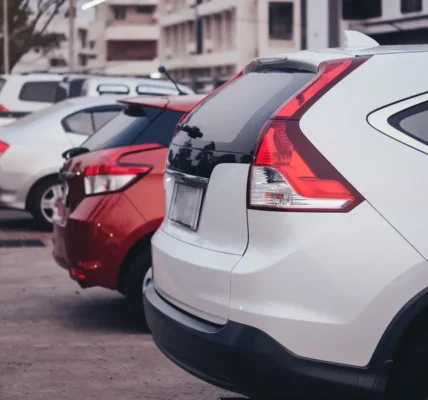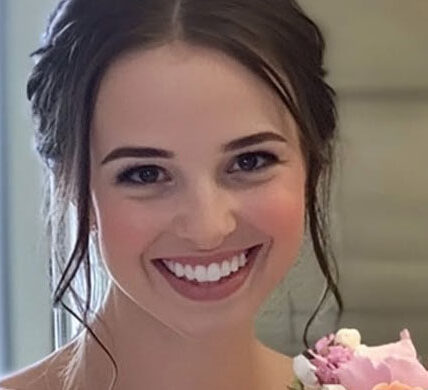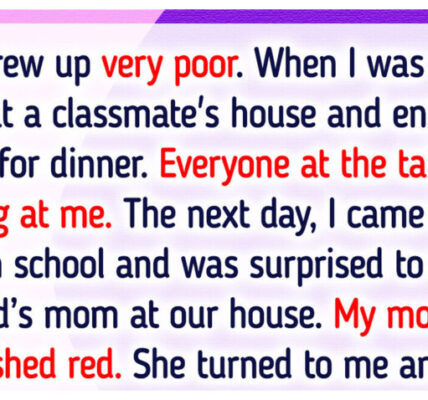When I told him I worked at Alliance Traffic, he actually smirked.
Like—smirked. Looked me up and down, then said, “Wait, like…on the road? With signs and cones and stuff?”
I nodded. “Yeah, I’m on the field team.”
He laughed. “That’s cute.”
Cute. I’ve been on that jobsite in sideways rain, moving barricades twice my size. I’ve patched asphalt at 3 a.m. with my hair tied up in a hard hat and sweat freezing on my neck. But sure—cute.
He didn’t ask how I got there. Or that I used to waitress double shifts until a spot opened up on my cousin’s crew. Or that I studied the MUTCD front to back and aced my certs. I’ve had to prove myself more times than I can count—because I don’t “look like” I belong.
And yeah, I’m blonde. So I guess that means I’m supposed to smile, take photos in cute boots, and not run the night shift with five guys twice my age. But I do.
Anyway, we were out for drinks. First date. I wasn’t planning on making it deep.
But when he kept joking about “little flag girls” and “pretty faces in safety vests,” something in me flipped. I stared at my beer. Didn’t say anything at first.
Then I looked him dead in the eye and said something I’ve never told anyone on a first date before.
And the way his face changed—I knew right then this night was about to get real interesting.
I set my bottle down and said, “I got into traffic work because I was in an accident four years ago. It happened in a construction zone where the signs weren’t set up properly.”
His expression flickered with a hint of confusion and then curiosity. The smirk was gone. “Oh,” he said softly.
My heart started racing. I normally didn’t talk about that night. Not with strangers, not with old friends, not even with my own dad. I took a breath and spoke anyway. “It was late. I was driving home from a shift at the diner. I was tired, but I wasn’t messing around on my phone or anything. The construction zone was poorly lit, and some of the cones were knocked over by the wind. I swerved to avoid a big chunk of debris and ended up spinning out.”
I paused, feeling the phantom ache in my shoulder. “I hit the concrete barrier so hard the doctors weren’t sure I’d walk away without permanent injuries. But after surgeries, therapy, and a ton of grit, I got back on my feet.”
He stared at me in silence. There wasn’t an ounce of the smugness left on his face. I didn’t want to read pity in his eyes, but there was definitely some regret. Maybe he regretted calling my job ‘cute.’
“And that’s why you do this work?” he asked eventually, leaning forward.
I shrugged. “Pretty much. I realized how important it was to keep sites safe. To watch out for people driving home who might be tired or inexperienced with night driving. I don’t want anyone else to go through what I did. That’s not the ‘whole truth,’ but it’s a big piece of it.”
He fiddled with his napkin. “Wow. I’m sorry. I was being a jerk.”
I gave a small laugh, even though I still felt a bit stung. “Thanks for admitting it. It’s not easy work, you know? People think we just stand around holding a sign, but there’s a lot more to it.”
He nodded. “I guess I never really thought about it.”
We fell silent. The bar around us bustled—glasses clinking, music playing, a group of friends in the corner cheering at a game on TV. For a second, I wondered if I should’ve let the moment pass and never brought it up. But I also felt a weight lifting. Like I’d finally said what needed to be said.
Eventually, he cleared his throat. “So, is that why you studied all those manuals and certifications?”
I nodded, taking a slow sip of my drink. “Yeah. There was this one guy on my cousin’s crew who taught me everything. Dale’s his name. He’s kind of a big brother figure to me, always had my back. He insisted I learn the MUTCD like the back of my hand. He made me practice setting up signs in the yard until I could do it in my sleep. He told me, ‘If you’re gonna do this, do it so well that nobody can question you.’ And here I am.”
His eyes flicked down to the table. “I feel stupid for laughing. I had no idea that was part of your story.”
I shrugged, trying not to dwell on it. “Look, we all carry our own stuff. And yeah, people assume what they want based on appearances. It happens.”
He opened his mouth, looked like he wanted to apologize again, then stopped and sighed. “Well, thanks for telling me. I don’t deserve it, but I appreciate it.”
For a moment, I felt a spark of empathy for him. Maybe he came off arrogant because he was nervous or trying to be funny. Maybe I’d made some assumptions about him, too. “So,” I said, “enough about me. What’s your story?”
He hesitated. Then he snatched a fry off the plate we were sharing, twirling it between his fingers. “I actually work in finance. My dad owns a brokerage, and I joined the firm right after college. Everybody thought that was the obvious route. But I’m not sure if it’s what I really want.”
I raised my eyebrows. “Yeah?”
He nodded, looking uncertain. “I kind of got pushed into it. I’m good with numbers, but every day I wonder if I’m living someone else’s dream. I guess I envy people who are out there doing something real.”
I chewed on that for a second, feeling my frustration soften. “Well, it’s never too late. Life’s short, you know? Maybe you could explore something else.”
He gave a half smile. “Yeah. Maybe.”
We talked a while longer, actually opening up about our families, our fears, and random hopes we both had. The conversation turned out surprisingly honest. He admitted he had a habit of making jokes when he felt out of his depth—which explained why he’d acted so dismissive about my job. And I told him about my struggles with being taken seriously, especially as a woman in a field that’s overwhelmingly male.
By the time the waiter brought our check, I was feeling more relaxed. He offered to pay, apologizing again for his earlier attitude. I insisted on splitting it. For me, it felt like a moment to show him I’m not asking for pity or special treatment. I can hold my own, whether it’s on the job site or at a bar.
As we walked out, the crisp air of the city night felt refreshing. He stopped me on the sidewalk and asked, “So… you wanna do this again sometime?”
I hesitated, trying to gauge whether I felt a real connection—or if I was just relieved the night had turned civil. “Could be,” I replied. “Let me think about it.”
He smiled, an earnest kind of smile I hadn’t seen from him all night. “That’s fair.”
We exchanged a friendly nod and parted ways. I watched him disappear into the crowd, then took a deep breath. Instead of stepping onto the bus, I decided to walk home. It was a clear night, and the city lights reminded me how alive everything was.
A few days later, I was back on the job. Six a.m. shift, overseeing a lane closure near the waterfront. My coworker Dale whistled at me from across the lot. “Rena, you good over there?”
I gave him a thumbs-up. “Just finishing these signs.”
As I hammered the last sign into place, I remembered the conversation from that night. How I’d never told someone on a first date about my accident. How that one admission had flipped the whole dynamic. Part of me was still surprised I’d told him at all. But I realized, in some ways, I was done hiding this part of my life. It shaped who I am, and I shouldn’t be ashamed of it—or of the job that came out of it.
There was a car waiting at the closure, and the driver glanced my way. I offered a wave, then got the signal from Dale that it was safe to proceed. Work was going smoothly so far. No big surprises, no storms rolling in. My crew and I were in sync. And just for a second, I felt proud. Proud that I was here, that I knew what I was doing. Proud that I’d taken something painful from my past and turned it into a job that mattered.
And that’s when it clicked. This job wasn’t just about signs and cones and letting cars pass. It was about keeping people safe, giving them a chance to get home without the nightmarish outcomes I’d lived through. That realization was why I woke up before dawn with sore muscles and a dozen bruises every week. And it was worth it.
Sometimes, life tosses you into situations you don’t choose, only to find out those experiences give you a passion and a drive you never saw coming. We can’t change other people’s assumptions overnight. But we can stand strong in who we are and what we do. If my date taught me anything, it’s that first impressions can be misleading—for both sides. And if we just open up a little, we might find common ground even when everything starts off tense or awkward.
I might see him again. Or maybe not. But in that brief moment, I realized that honesty and vulnerability can transform a snarky conversation into something honest and meaningful.
So if you’re ever feeling judged for the work you do—or for who you are—remember that your story matters. The paths we choose can come from unexpected places, and you never know how your story might change the way someone else sees the world.
Thank you for reading. If this story resonated with you, feel free to share it with a friend or like this post. Let’s remind each other that no matter the challenges or judgments we face, our experiences shape us into the resilient, hardworking people we are—people worth rooting for.



